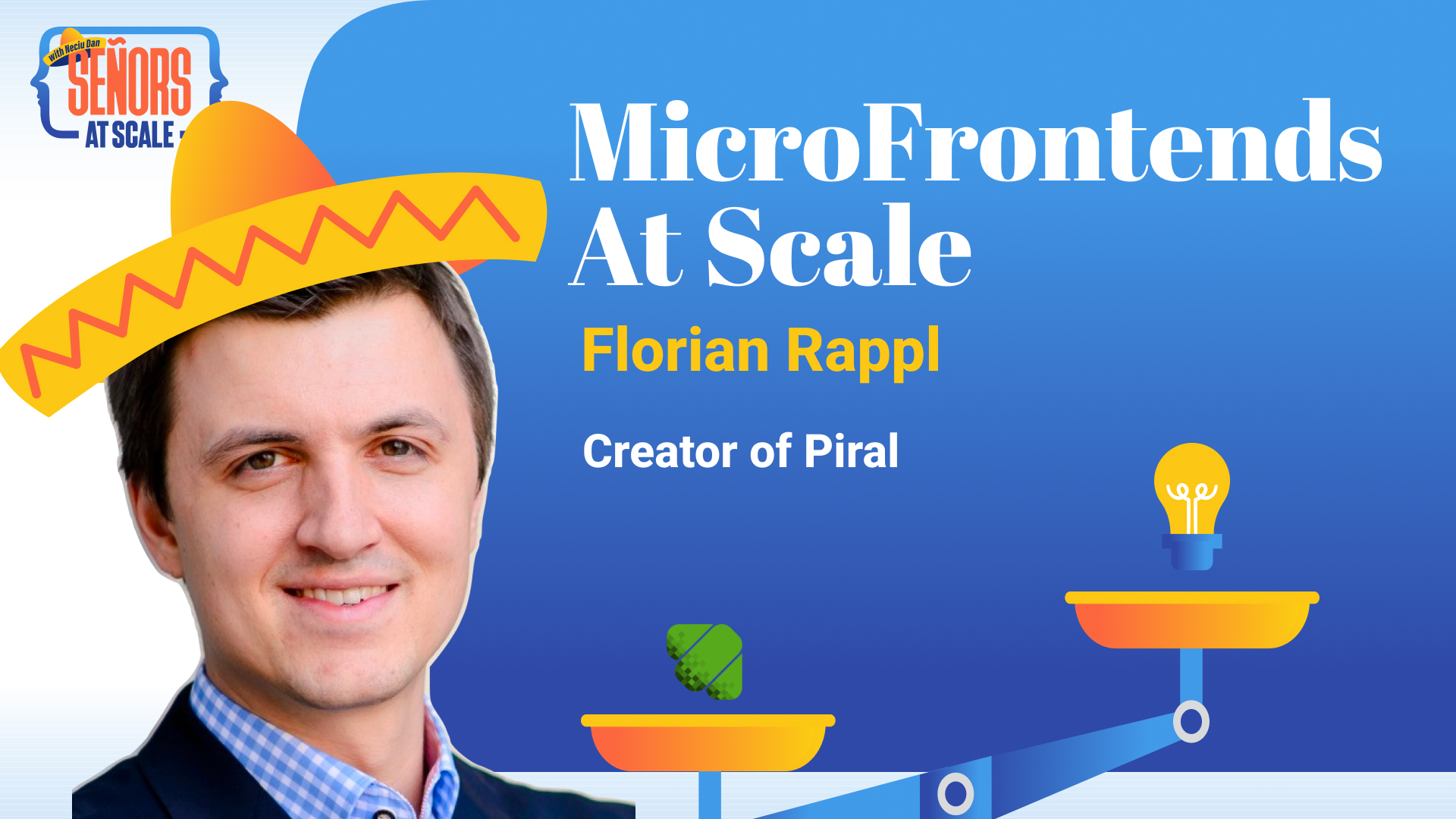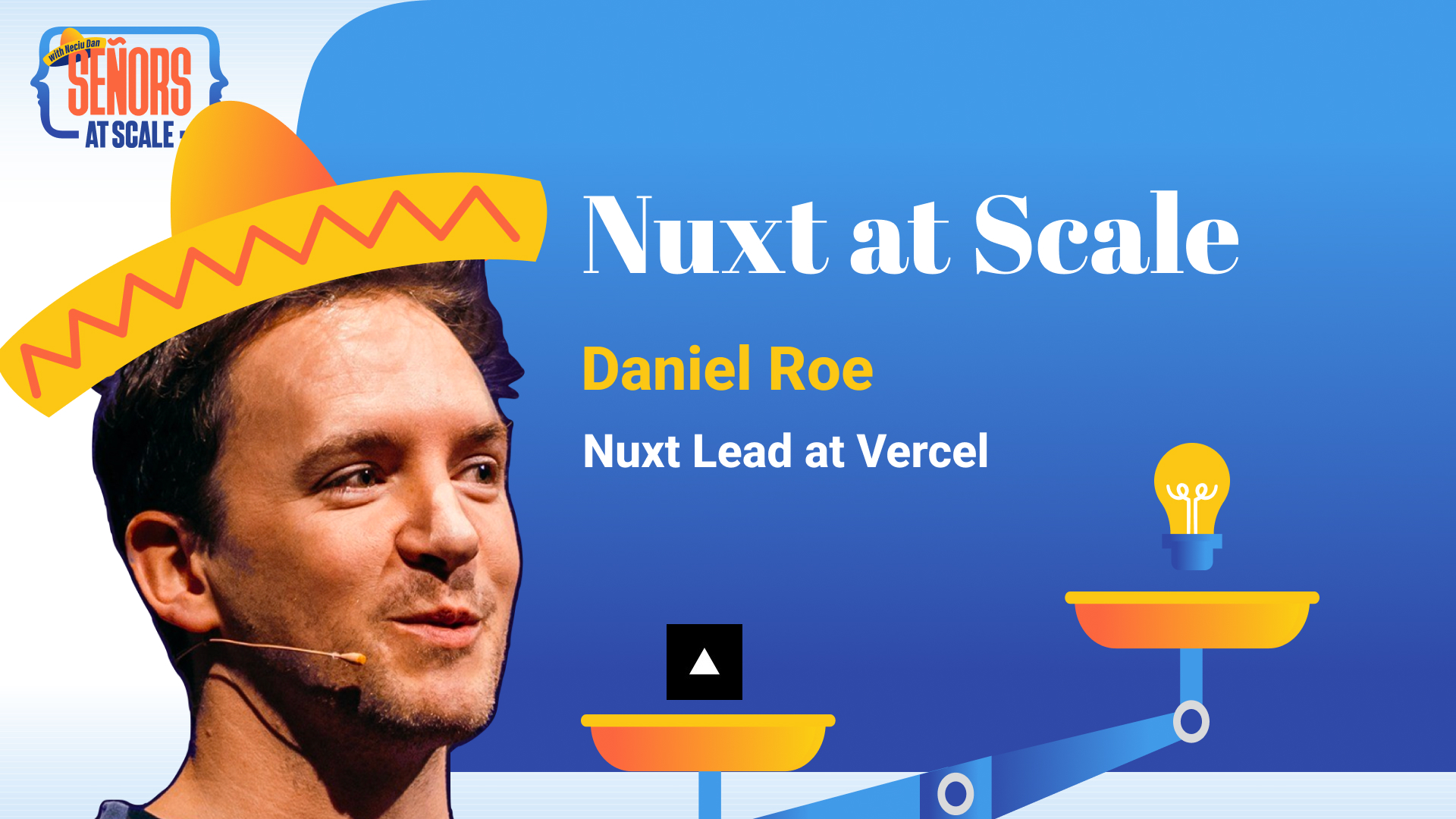Bruno Paulino
Tech Lead at N26
Señors @ Scale host Neciu Dan sits down with Bruno Paulino, Tech Lead at N26, to explore what reliability really means in FinTech. From server-driven UIs and CI/CD pipelines to AI-assisted customer support and strict compliance, Bruno shares how N26 balances speed, safety, and developer experience to keep millions of users online.
🎧 New Señors @ Scale Episode
This week, I sat down with Bruno Paulino, Tech Lead at N26, to talk about what reliability at scale really means when every deploy touches millions of bank customers.
It’s a conversation about trust, resilience, and trade-offs — from building CI/CD pipelines that deploy in minutes, to server-driven UIs that let N26 roll out features instantly, to scaling customer support using LLMs and Retrieval-Augmented Generation.
⚙️ Main Takeaways
1. Reliability isn’t just uptime — it’s trust.
When your app handles real money, every minute of downtime has a financial cost. N26 designs reliability as a core product feature, not an afterthought.
2. CI/CD transformed how fast teams ship.
Pipeline time dropped from one hour to five minutes. With GitHub Actions, Argo CD, and Kubernetes, deployments are now predictable, testable, and safer.
3. Server-driven UI changes the game.
The backend defines what users see — from banners to buttons — across mobile, web, and desktop. Features can roll out in five minutes instead of waiting for app store approvals.
4. AI is reshaping customer support.
Bruno’s team built an AI Assistant using LLMs and RAG pipelines to make support faster, more contextual, and scalable — all while keeping reliability and compliance intact.
5. Safe experimentation with Statsig.
Every major feature at N26 goes through type-safe A/B testing using Statsig. Teams can ship to 5% of users, observe performance, and ramp up safely.
6. Reliability vs. Speed: the trade-off.
At N26, reliability always wins. “If your bank is down, someone might miss a mortgage payment.” The culture encourages testing, redundancy, and resilience at every level.
7. Security is everyone’s job.
Every team has a security champion responsible for audits and best practices. Vendor integrations go through a formal security assessment to protect customer data.
8. Lessons from outages.
A misconfigured CDN once broke CSS for every customer. That post-mortem led to stronger Terraform practices and better guardrails around infrastructure changes.
9. Accessibility and compliance are non-negotiable.
The team uses React Axe, Playwright, and Radix UI to ensure accessibility testing happens in CI — not as an afterthought.
10. Culture matters more than code.
From mentorship to lightweight RFCs, Bruno highlights how strong culture and communication make large systems — and teams — more resilient.
🧠 What I Learned
- Reliability isn’t about perfection — it’s about predictability under stress.
- Developer experience is a direct multiplier for reliability.
- Automation and experimentation make teams faster and safer.
- The best platform engineers think in trade-offs, not absolutes.
💬 Favorite Quotes
“If your bank is down, it’s not just a bug — someone might miss their mortgage payment.”
“We cut deploy time from one hour to five minutes — and people started shipping again.”
“Server-driven UI means we can change what users see in minutes, not days.”
“The goal isn’t to move fast — it’s to move safely, repeatedly, and confidently.”
🎯 Also in this Episode
- How N26 organizes its platform and assistance teams
- The hidden cost of slow pipelines and flaky tests
- Why CI/CD ownership belongs to everyone
- How accessibility became part of the release checklist
- The difference between reliability and availability
🎧 Listen Now
🎧 Spotify
📺 YouTube
🍏 Apple Podcasts
Episode Length: 1h 7m on reliability, platform culture, and CI/CD at scale.
If you care about reliability, developer velocity, or building systems people can trust — this one’s worth your time.
Happy scaling,
Dan
💡 More Recent Takeaways

Señors @ Scale host Neciu Dan sits down with Florian Rappl — author of 'The Art of Micro Frontends,' creator of the Piral framework, and Microsoft MVP — to explore how micro frontends are transforming how we build scalable web applications. Florian shares hard-won lessons from over a decade of building distributed systems, from smart home platforms to enterprise portals for some of Germany's largest companies.

Señors @ Scale host Neciu Dan sits down with Daniel Roe, leader of the Nuxt Core team at Vercel, for an in-depth conversation about building and scaling with Nuxt, Vue's most powerful meta-framework. Daniel shares his journey from the Laravel world into Vue and Nuxt, revealing how he went from being a user to becoming the lead maintainer of one of the most important frameworks in the JavaScript ecosystem.

Señors @ Scale host Neciu Dan sits down with Daishi Kato, the author and maintainer of Zustand, Jotai, and Valtio — three of the most widely used state management libraries in modern React. Daishi has been building modern open source tools for nearly a decade, balancing simplicity with scalability. We dive deep into the philosophy behind each library, how they differ from Redux and MobX, the evolution of the atom concept, and Daishi's latest project: Waku, a framework built around React Server Components.

Señors @ Scale host Neciu Dan sits down with Vlad Khononov, software architect, keynote speaker, and author of Learning Domain-Driven Design and Balancing Coupling in Software Design. Vlad has spent over two decades helping teams untangle legacy systems, rebuild failing architectures, and bring clarity to messy business domains. This conversation cuts through the hype around DDD and microservices, focusing on the mechanics of bounded contexts, coupling, business alignment, and architectural evolution.
📻 Never Miss New Takeaways
Get notified when new episodes drop. Join our community of senior developers learning from real scaling stories.
💬 Share These Takeaways
Want More Insights Like This?
Subscribe to Señors @ Scale and never miss conversations with senior engineers sharing their scaling stories.
